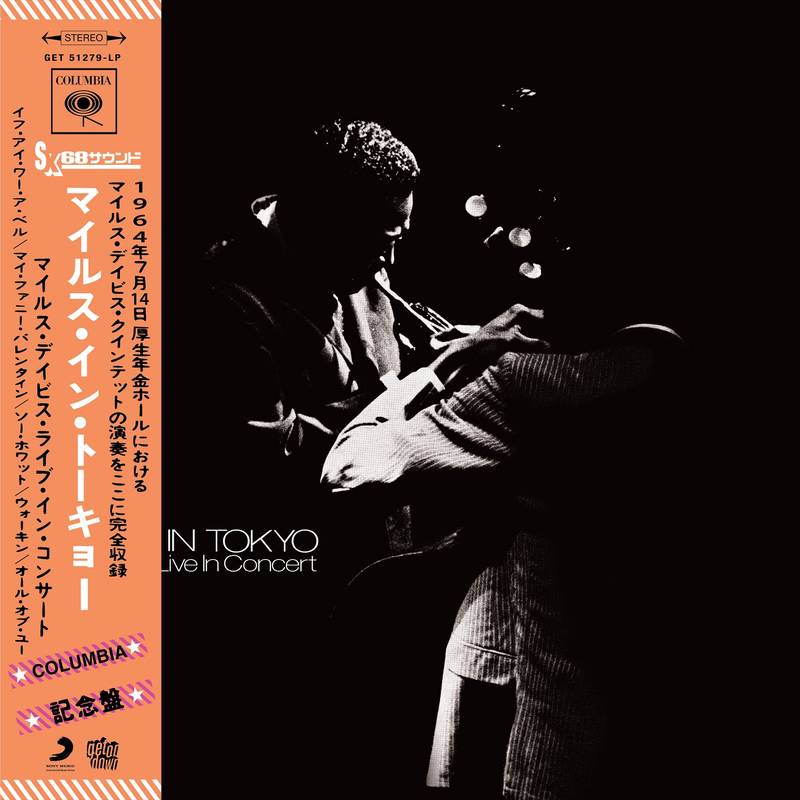
Miles Davis fans are being treated with not one, but TWO exclusive releases for the 2019 Black Friday Record Store Day! The first one, a special release of outtakes from the Complete In A Silent Way Sessions, we covered HERE.
If that wasn’t enough, reissue label Get On Down is releasing a previously Japan-only album of Miles Davis in concert from 1964 with an early iteration of his “second great quintet.” It was released in the US on CD in 2005, but not on vinyl. Titled simply Miles in Tokyo, the album originally came out in 1969 on Sony/CBS and this release copies that release down to the gorgeous black and white cover art and the OBI strip (which is slightly modified to show the Get On Down catalog number and logo). The original pressing was a gatefold, I’m hoping the replicated that as well, but I have no indication one way or another. (Chris from Bull Moose hasn’t done his rundown yet. I’ll update this if he mentions it).
This recording follows the legendary February 12th, 1964 performance at the Philharmonic Hall at Lincoln Center in New York City. The performance was a benefit show to raise money to get black voters registered in the South. The band, made up of Herbie Hancock on piano, Ron Carter on double bass, Tony Williams on drums and George Coleman on tenor sax (who would be replaced by Sam Rivers for the overseas shows including Live in Tokyo) were not told until just before the show that they would be donating their salaries for the night and told that if they didn’t like it they could leave the band. Davis would credit the resulting tension for creating the fiery performance captured on two albums: My Funny Valentine and Four & More both released in 1965.
Sam Rivers joined Miles Davis’s quartet in April of 1964 replacing George Coleman according to the Sam Rivers sessionography. This database quotes Davis as saying he wanted to hire Wayne Shorter but Art Blakey had him tied up in the Jazz Messengers, so he hired Rivers at Tony Williams’s suggestion and took him on tour. Rivers would stay with the quintet through July 15th, which is the day after the Miles in Tokyo recording took place. Rivers would be replaced evenually with Wayne Shorter in September, which would establish the “second great quintet” which would stay in place until 1968 and recorded the albums E.S.P., Miles Smiles, Sorcerer, Nefertiti, Miles in the Sky, and Filles de Kilimanjaro.
I think the reason for Rivers’s short stint in Davis’s band is two-fold. Clearly Rivers was Davis’s second choice, and also the general opinion is that Rivers’s style on the sax didn’t mesh well with Davis’s, and this is apparent according to critics on the Miles in Tokyo album. To me the recording is notable in its frenetic pacing of the songs. I think it picks up the energy from the Lincoln Center performance, which shares a lot of the same songs, including the sped up “So What.”
Here is the track listing for Miles in Tokyo:
A Side : “If I Were A Bell”, “My Funny Valentine”
B Side : “So What”, “Walkin”, “All Of You”
Helpfully, there is a YouTube video of the complete album:

